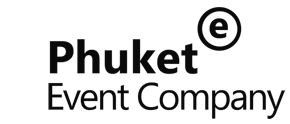Business & Professional
Certified LeSS Basics Munich
Large-Scale Scrum (LeSS) is a framework for scaling agile development methods for multiple teams. A short overview can be found on LeSS.works . LeSS builds on the Scrum principles such as empiricism and cross-functional, self-managing teams and prov
- Munich Germany
- Start: Jul 19 2022 00:00
- Finish: Dec 01 2024 00:00
- Time zone: Europe/Berlin
- Oct 14 2019
- 33
- 372 Views

Large-Scale Scrum (LeSS) is a framework for scaling agile development methods for multiple teams. A short overview can be found on LeSS.works . LeSS builds on the Scrum principles such as empiricism and cross-functional, self-managing teams and provides a framework to use them on a larger scale. Here, simple structural rules and guidelines are given, as Scrum can also be used for large projects in product development.
The Certified LeSS Basics course provides an initial introduction to the LeSS framework. In a one-day training course, you will get an overview of the framework itself and get to know some of the basic concepts. The course will help you decide if LeSS could be the right one for your needs, but for the introduction of LeSS, we also recommend participating in a LeSS Practitioner course .
The Certified LeSS Basics course is suitable for anyone who deals with the concept of LeSS. Basic knowledge of Scrum is required, which means, for example, that a course has already been completed as a Certified Scrum Master or a Professional Scrum Master , or has been acquired through the study of specialist literature such as the Scrum Primer and practical experience in using Scrum. The Certified Less Basics course is often offered as an extension day of a Scrum course and thus serves to deepen Scrum-focused training.
Would you like to know what practical experience some companies have had with the introduction of LeSS? Then visit the LeSS Case Studies page .
LEARNING GOALS
Foundational Knowledge
A year (or more) after this course is over, we want and hope that participants will still be able to:
Articulate why LeSS
Explain how LeSS is a Scrum-based approach on scaling
Summarize what impact this has on the organisational design (structures, policies, etc.)
Explain the dynamics of component teams vs. feature teams
Explain all LeSS roles and their purposes
Explain why there is one and only real PO and not so-called team POs
Explain the LeSS Complete diagram, organizing LeSS information in terms of the principles, rules, guides, and experiments
Explain how LeSS scales over ~8 teams
Know the existence of and location of major learning resources at less.works, including at least these sections: Why LeSS?, Introduction to LeSS (chapter 2 from book 3), the rules, the online videos & books chapters. (this should be done with at least a “2” minute online tour of these elements, by the trainer)
Application Goals
After the class, we expect that participants will have skills to:
Analyze their current organisations’ state
Evaluate the applicability of LeSS in their current work environment
Integration Goals
After the class we want and hope participants are able to make following the connections:
LeSS is Scrum.
What organisational impacts LeSS adoption may cause.
What impact would LeSS adoption make to participants’ work life.
LeSS is building on top of modern management thinking. Eg. Peter Senge, John Seddon, W. Edwards Deming, Taiichi Ohno, Richard Hackman, Robert Sutton and Jeffrey Pfeffer. The authors and practitioners of LeSS advocate understanding leading management thinkers and prevailing evidence in terms of management thinking, and participants are encouraged to continue learning post training.
Human Dimensions Goals
After the class we want and hope participants have made the following realisations:
There is no blame. People’s behaviour is determined by the system they are in (managers have a responsibility to change the system).
What participants could or should learn about themselves
What is preventing them from influencing the organization they are currently in
What participants could or should learn about understanding others and/or interacting with them
Caring Goals
After the class, we want and hope participants have
Interest in learning more about topics discussed in the class
New ideas about their future
























